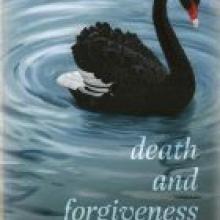
Death and Forgiveness tells the story of Anna, who, while on a trip to say farewell to her dying mother in the Czech Republic, learns of the suicide of her ex-husband, Jan, back in Dunedin.
It is the story of how she endeavours to come to terms with the whys and wherefores of his devastating act and his betrayal of their son for their daughter in his will, the final betrayal in a series that could have had their genesis in any number of moments of their lives together.
Interwoven is the story of Anna and Jan's past; their flight from the communist takeover of Czechoslovakia in 1968 to the United Kingdom, and their subsequent journey by ship to Dunedin, where Anna gives up any hope of a career of her own to support that of her logician husband in an alien country she is not sure she could ever call home.
This is the first work of Dunedin author Jindra Tichá to be published in English; she has previously published 19 novels in her native Czech Republic, where she has been honoured with a documentary devoted to her life and work, a rare honour for writers there.
Although billed as fiction, there are striking parallels between the author's life and that of Anna.
While it is not unusual for authors to draw from their own lives when writing, what is unsettling in this case is the closeness of these parallels, which cause the reader to start questioning what is fact and what is fiction.
Although titled Death and Forgiveness, I personally felt the novel was somewhat lacking in the second element.
Anna's description of her husband's new girlfriend, Clavdia, as ''mentally unstable'' and of having ''ruined a family that was quite happy before she met Jan'' seems spiteful, particularly given Anna's own affair nearly caused their divorce many years previously.
Her description of Jan is no more charitable; a man out ''to destroy me'' and full of ''venom''.
And this anger, this bitterness, seems to be transferred to the city she unwillingly makes a home, Dunedin, a city she describes as a ''place on the edge of the civilised world''.
Only in the last couple of chapters does she soften, feeling pity for Clavdia, a sense of belonging in New Zealand, and some (slight) understanding towards Jan.
Death and Forgiveness is a story of love and loss; both of a person, and a country.
It is about finding explanations in dark places, about sacrifice, loneliness and betrayal.
And while it seems somewhat light on forgiveness, perhaps this is to be expected given the catastrophic devastation caused by suicide; the questions that will never be answered, the betrayal of any possibility of reconciliation.
• Maria van't Klooster is an avid Dunedin reader.
Suicide Crisis Helpline: 0508-828-865
Lifeline:0800-543-354











